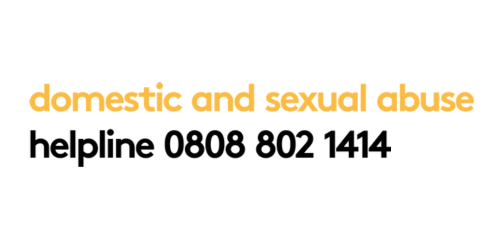Empower
Call us now on 0808 802 1414
or email help@dsahelpline.org
What is Abuse
Everyone has disputes or disagreements, with their partners, family members and others close to them from time to time. And we all do things occasionally that we regret, and which cause unhappiness to those we care about. But if this begins to form a consistent pattern or is done deliberately then it is an indication of domestic violence and abuse.
Abuse is a pattern of behaviour used to gain and maintain power and control over another person. It can take many forms, and it often involves harm—whether physical, emotional, psychological, sexual, financial, or neglectful. Abuse can happen in any kind of relationship, including family, romantic partnerships, friendships, workplaces, and institutions.
Domestic Violence and Abuse is: ‘threatening, controlling, coercive behaviour, violence or abuse (psychological, virtual, physical, verbal, sexual, financial or emotional) inflicted on anyone (irrespective of age, ethnicity, religion, gender, gender identity, sexual orientation or any form of disability) by a current or former intimate partner or family member’.
The definition of Sexual Violence and Abuse is: ‘any behaviour (physical, psychological, verbal, virtual/online) perceived to be of a sexual nature which is controlling, coercive, exploitative, harmful, or unwanted that is inflicted on anyone (irrespective of age, ethnicity, religion, gender, gender identity, sexual orientation or any form of disability).’
Types of Abuse



Why leaving an abusive relationship isn’t always simple
By recognising the many barriers that can prevent someone from leaving an abusive relationship—whether psychological, emotional, financial, or involving physical threats—we can offer more compassionate support and empower victims to make informed choices that are right for them. When considering why someone stays, we must always think ‘What are the implications of them leaving, after-all their victims/survivors know only too well what has and or will happen if they’re found. At the same time, we must ensure that responsibility lies solely with the abuser for their actions.
Understanding the complex reasons why someone may stay in an abusive relationship is essential to offering meaningful support. Abuse is never the victim’s fault, and leaving can be incredibly difficult for many reasons, including:
Fear and Danger
Leaving an abusive relationship can be one of the most dangerous times for a victim. The threat of violence often increases after separation, and the fear they feel is very real and justified. Children are often used to inflict fear that social services will be called as according to their abuser they are ‘not a fit parent and will lose their children’ This can stop them from leaving their abuser sooner.
Isolation
Abusers often work to cut victims off from friends, family, and support networks. This isolation makes it harder to seek help and can lead to deep dependency on the abuser. It also prevents victims from recognising the abuse for what it is.
Trauma and Low Self-Esteem
Living with constant criticism, control, and fear can deeply affect a person’s confidence and mental health. Victims may be told repeatedly that they are worthless or incapable of surviving on their own, leaving them traumatised and unsure of their ability to leave.
Shame, Embarrassment, or Denial
Abusers may be well-liked or respected in their communities, using charm and manipulation to mask their behaviour. Victims may feel ashamed, make excuses, or struggle to accept that what they’re experiencing is abuse—especially when the abuser denies or blames them for it. r.
Practical and Financial Barriers
Abusers often control finances, employment, and access to resources, making it difficult for victims to support themselves or their children. Concerns about housing, immigration status, or losing custody of children can also prevent someone from leaving.
Difficulty Asking for Help
Domestic abuse is a difficult subject for people to talk about leaving those suffering, with no knowledge about where to turn for support. Misunderstandings and stigma can prevent professionals from responding appropriately, leaving victims feeling unheard or unsupported.
Supporting a Victim
Leaving an environment where abuse is occurring or has occurred takes courage but support is available from seeking space in a pharmacy consulting room to make a private phone call to a free transportation system offered by Translink which can be arranged by the Domestic and Sexual Abuse Helpline.
There are a number of ways you can support a victim by offering them a safe space to confide in you or tell them you have concerns about their well being but most importantly listen and believe them. Trust what they say.
Disclosing some of the most horrendous experiences they have gone through can be deeply emotional and traumatic. The person often feels guilty and blames themselves. It’s vital to reassure them that the blame lies firmly at their abuser’s door and none of this is their fault.
Encourage them to reach out to the Domestic and Sexual Abuse Helpline and remind them that it is is a non-judgemental confidential service and there is a way out. Your support can help them feel less alone and more confident in taking the next steps toward safety and recovery.
Reassure them they are doing the right thing and support them to ensure they are not alone.
